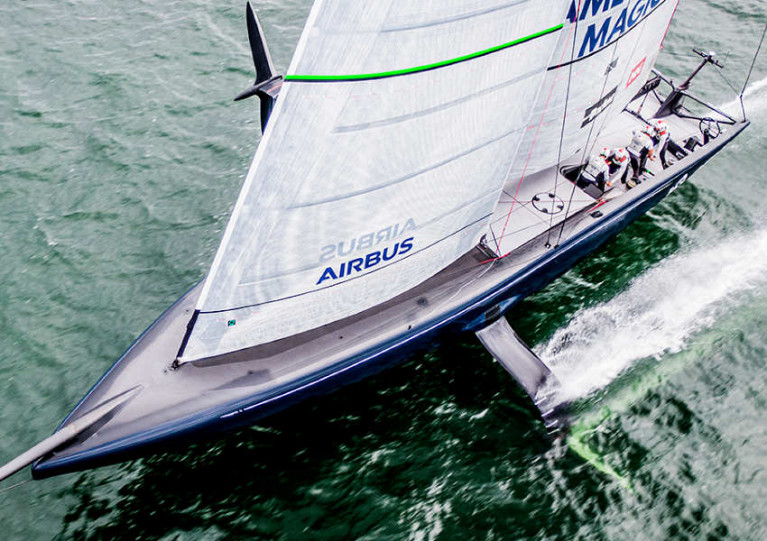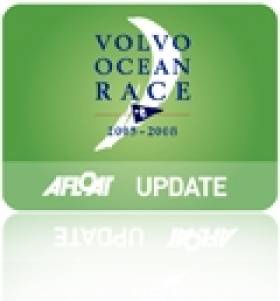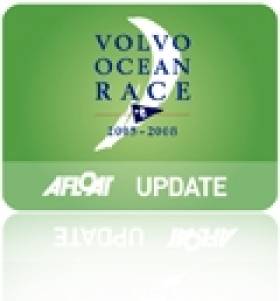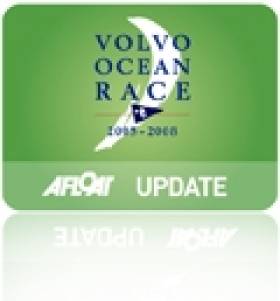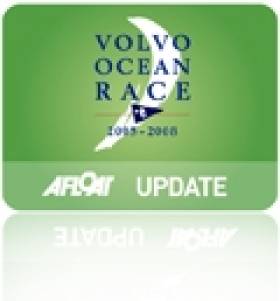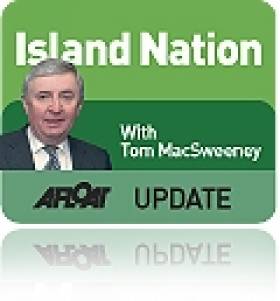Displaying items by tag: Auckland
SailGP Cancels 2024 Auckland Event Over Spectator Stand Legal Dispute
SailGP has cancelled its upcoming event scheduled for Auckland next March over a reported legal issue concerning land for a spectator stand.
According to Marine Industry News, a dispute has arisen over how much land would be made available for the seating area at Wynyard Point, a zone of reclaimed land on Waitematā Harbour where remediation works are ongoing and which is currently leased to America’s Cup winners Emirates Team New Zealand.
The city of Auckland said that it presented alternatives to SaulGP organisers but “the unavailability of Wynyard Point land as a spectator facility proved to be a barrier to holding the event in Auckland”.
A spokesperson for SailGP said that it “continues to work…to progress planning for its Season 4 New Zealand event, 23-24 March 2024”.
Marine Industry News has more on the story HERE.
America’s Cup: UK & US Challengers Doubtful for Friday Practice Racing Over Boat Issues
Two of the three America's Cup challengers may not take part in the first practice races following incidents on the water earlier in the week.
As the NZ Herald reports, Ineos Team UK and American Magic are in doubt for tomorrow’s (Friday 11 December) racing in Auckland after boat issues sustained on the course off Maraetai, an eastern suburb of New Zealand’s largest city.
“They're not ready,” regatta director Iain Murray said. “I think the British broke their boat on the first day and I still don't think it's recovered from that.”
The setback will be the last thing the British and American teams will want as the defending Emirates Team New Zealand remains the boat to beat.
As previously reported on Afloat.ie, four teams — including Italy’s challenger Luna Rossa — will battle it out with their second-generation AC75s in the America’s Cup World Series Auckland and Christmas race, from next Thursday 17 December.
Team SCA Take Second VOR In-Port Race Victory Of The Year
#VOR - They may be training behind the pack on the race legs, but the women of Team SCA flexed their muscle in Auckland, New Zealand a few hours ago to take their second in-port race victory of the 2014-15 Volvo Ocean Race.
And as the VOR website reports, it was a convincing victory at that, as they look the lead from the start line and held position through the course that took the fleet under the Auckland Harbour Bridge.
Team skipper Sam Davies said the win would "boost our team's morale for the next few days" as the six-boat fleet awaits the passing of Tropical Cyclone Sam before they can safely embark on the voyage across the Southern Ocean to South America and Itajai in Brazil - the longest leg of the race by far at some 6,776 nautical miles.
The win marks the all-female team's biggest highlight of the VOR since their New Year in-port race first place in Abu Dhabi.
Spanish Win Latest VOR Leg As Top 3 Finish Within 8 Minutes
#VOR - MAPFRE have crossed the line at Auckland to take victory in the fourth leg of the 2014-15 Volvo Ocean Race, just minutes ahead of their closest rivals Abu Dhabi Ocean Racing – with Irish bowman Justin Slattery among her crew – and Leg 3 winners Dongfeng Race Team.
Indeed, only eight minutes separated the three yachts as they sailed into the Viaduct Harbour in New Zealand's largest city just over an hour ago. And Team Alvimedica were not far behind, crossing the line within the last few minutes.
What's more, there's still a battle to escape last place, as Team Brunel and Team SCA were just nine nautical miles apart according to the most recent live tracker update.
"Today is a very good day for the team!" said MAPFRE skipper Xabi Fernandez as his boat and crew reached the finish line at 9.31pm local time.
And there were no hard feelings from second-place Abu Dhabi, with skipper Ian Walker saying he was "very pleased for Xabi" after "a very, very exciting finish, and a few nerve-wracking days."
The result marks an incredible change in fortunes for the Spanish team, who finished dead last in Cape Town after the first leg but steadily improved their form as the fleet traversed the Indian Ocean and the South China Sea towards the Pacific.
The Volvo Ocean Race website has much more on the story HERE.
Winds Of Up To 30 Knots Forecast For Sanya Departure
#vor – Volvo Ocean Race's six-strong fleet heads out towards Auckland from Sanya for Leg 4 on Sunday with some big calls to make in the latest instalment of a marathon offshore contest.
Charles Caudrelier's (FRA) Dongfeng Race Team have their noses in front by a single point after the stage from Abu Dhabi to Sanya, but know that they could so easily follow the example of Team Brunel (Bouwe Bekking/NED), who could only muster fifth place on the leg to China after winning the previous one.
The Chinese team, which became the first from the world's most populous nation to win a leg in the 41-year-old race last month, have yet to announce their crew plans for the 5,264-nautical mile trip to Auckland, New Zealand.
These will be unveiled on Friday (February 6) and it will be fascinating to see how many changes they make to a crew which is performing so surprisingly well.
Chris Nicholson (AUS) and several members of the Team Vestas Wind crew, whose boat was badly damaged on a reef in the Indian Ocean on November 29 during Leg 2, will watch the departure in Sanya.
The skipper from Lake Macquarie, New South Wales, reported on Thursday that Vestas Wind had arrived at the Persico yard in Bergamo, Italy, and the first stages of the rebuild were now underway with a hoped-for return to the race in June.
Meantime, the latest round of the In-Port Race Series - this one named the Team Vestas Wind In-Port Race - will be held on Saturday with Team SCA (Sam Davies/GBR) aiming to continue their good form following victory in Abu Dhabi.
Volvo Ocean Race Veteran Hails New One Design
#VOR - SailRacing Magazine recently sat down with Volvo Ocean Race veteran Neil Cox to get his views on the new design VOR 65 that will sail in the next edition of the round-the-world race next year.
A project consultant for the early stages of the build process, Cox - previously a shore manager for the PUMA and CAMPER crews - says the designers started from scratch "with a blank canvas" as opposed to previous designs based on iterations of "the Volvo rule".
He also enthuses about the change to one design racing in the VOR, which "means the greatest speed advantage will come from being able to push the boat harder than anyone else".
SailRacing Magazine has much more on the story HERE.
Meanwhile, TVNZ reports that Auckland in New Zealand has been announced as the latest stopover port for the 2014-15 edition of the global yachting challenge.
Volvo Ocean Race chief Knut Frostad described the race's return to New Zealand in 2015 and again in 2018 as a "no brainer" after last year's visit to the country's largest city on the Southern Ocean leg.
Two stopovers in Brazil were previously unveiled for the next edition of the Volvo Ocean Race, the most recent of which enjoyed a memorable conclusion in Galway last summer.
Marine Department Promised, First America's Cup Capsize, Whales and Sailing Oil Tankers
I am reflecting this week on a varied list of maritime issues which have arisen in my writings on marine topics.
Following recent pieces I wrote about the attitude of political parties in the General Election towards the marine sector, I had a telephone call from a senior Fine Gael politician and, lo and behold, the party included the marine sector in its manifesto, pledging to restore the Department of the Marine, abolished by Fianna Fail. I await post-election developments with interest.
It has been a good week for those interested in protection of whales and dolphins. Hundreds of dolphins were spotted off the Old Head of Kinsale, apparently following shoals of herring and sprat on which they were feeding.
In the Antarctic the Japanese whaling fleet was forced to give in to pressure to stop culling. The Japanese have killed hundreds of whales every year, claiming this was for "scientific purposes," even though it has been identified worldwide as for human consumption. The fleet was ordered home by its Government after increasing international pressure.
The Irish Whale and Dolphin Group published its annual report this week. It was formed in December 1990, dedicated to the "conservation and better understanding" of cetaceans - whales, dolphins and porpoise - in Irish waters through "study, education and interpretation." IWDG turnover in 2010 was around €300,000. It has dealt with up to 10,000 queries a month for information on its website. A total of 92 strandings of 128 individual cetaceans was reported to the IWDG in 2010. This compares to 137 strandings of 169 animals for 2009.
This week oil prices rose because of the unrest in Libya and David Surplus, Chairman of B9 Energy Britain's largest windfarm operator, warned that sooner or later oil will run out. BP is examining the possibility of building a fleet of carbon-neutral, wind-powered sail ships planned, to carry world trade.
On the international sailing scene the new AC 45, forerunner of the next generation of America's Cup boats was launched in New Zealand and had its first capsize. The wing-sailed catamaran is designed for speed and close racing, capable of making up to 30 knots, while intended to be handled in tight, tactical courses. An exciting boat to sail, it will also be very testing of ability. The first capsize of the new boat occurred on Auckland's Hauraki Gulf, hit by what was described as "a freak gust of wind," while the crew were doing maintenance on board before a sailing test.
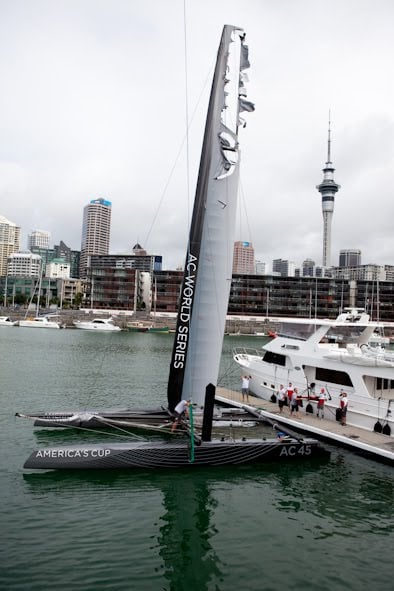
Back in dock after the capsize
It capsized fully, ending upside down. Three support vessels were needed to pick up the crew and right the boat which was sailed back to its base in Auckland. There was damage to the wing sail, but no injuries to the crew. However, helmets may be an additional precaution needed for sailing these boats, which are to be used in the AC World Series! This will be a circuit of eight regattas for which venue bids are being made at present, with fleet and match racing, to raise the profile of high-performance sailing on worldwide television. Racing is to start in July, with regattas running until May of next year, leading into preparations for the next full AC series in the bigger AC72 catamarans in 2013 in San Francisco.
As the past week showed, there is always something interesting in the sea.
This article is reprinted by permission of the EVENING ECHO newspaper, Cork, where Tom MacSweeney writes maritime columns twice weekly. Evening Echo website: www.eecho.ie



























